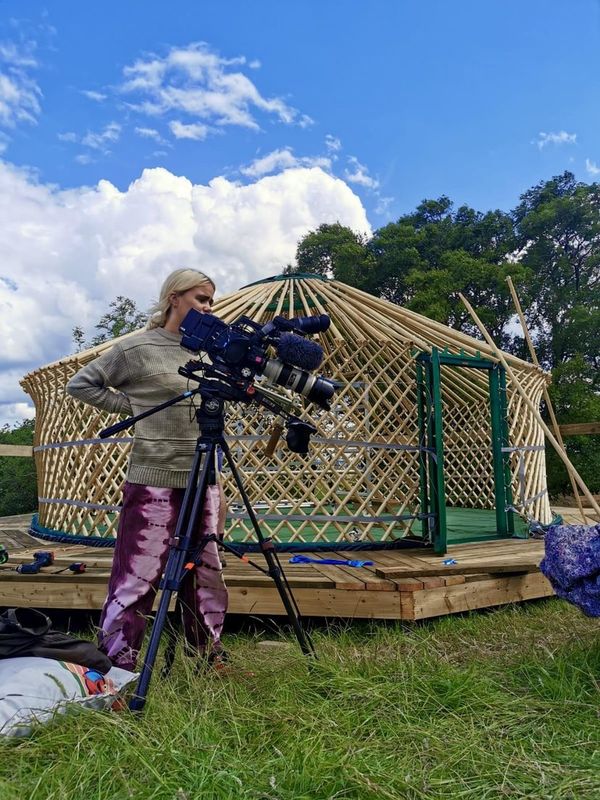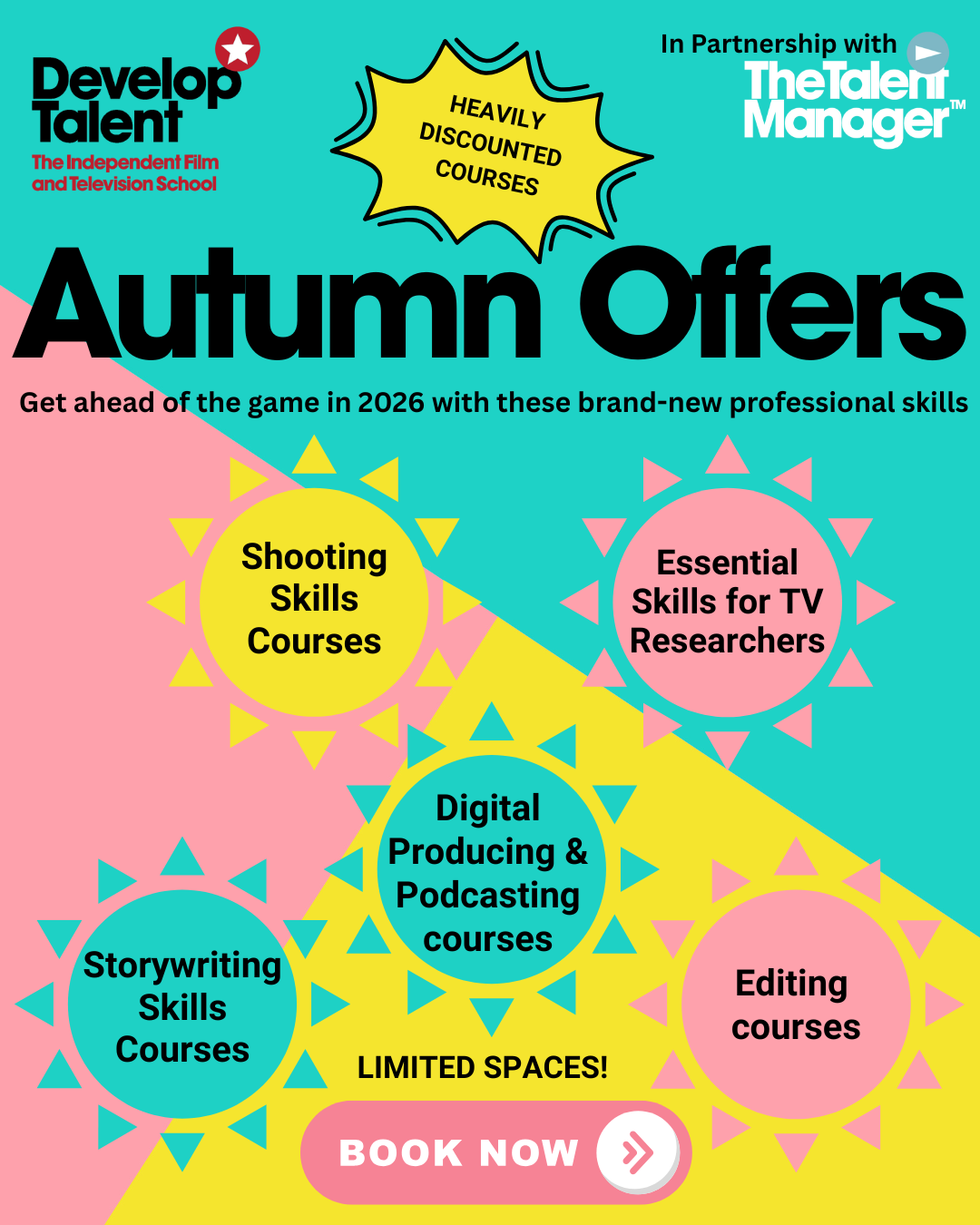Our Featured TM Pro Member today is Beth Bacon, Senior Researcher / Assistant Producer . 
Why did you decide the Editorial route was where you wanted to work?
I learnt about the different departments within television when I was part of the TV society whilst studying English Literature at university. I’ve always been a creative person and after some research into the difference between editorial and production, I realised the expertise necessary for editorial were far more attuned to my own skills. I have never been very good at maths or finances, which deterred me from production. Editorial is based around story and character, which is what drove my research within my Literature degree, and I knew this would continue to pique my interest throughout my career. You can’t know exactly what you’re going to love doing in 10 years-time, but if you at least have a vague grasp of what makes you tick, that will be a good indicator!
How did you get into Researching?
I first moved up to Researching after spending around two years as a Runner. My first Researcher credit was offered to me by a Series Producer that I had worked with before. She knew that I had a good work ethic and drive to move up the TV ladder, so trusted me enough to give me my first Researcher role. Once I achieved that first Researcher credit, I applied, and was offered (!), many more Researcher jobs. It’s all about who you know and staying in touch with the people with which you form a good rapport.
How did you learn to be an Researcher? What skills do you need?
Curiosity. More than anything you have to be curious. If you love delving down the Wikipedia rabbit hole for hours or become fixated by periods of history, current trends, or anything in between, then being a Researcher could be the perfect role for you!
You pick up many other television specific tips and tricks along the way (the dos and don’ts are very important) but if you have a keen interest in a particular subject matter when applying for a job, then let that shine through in your cover letter!
I learnt about the role of a Researcher by observing others whilst I was a Runner. I watched Researchers succeed in casting fascinating contributors in the office and observed them produce them whilst on set. I asked questions when appropriate and I kept in contact with colleagues along the way. Show that you’re keen, eager to learn, and a mindful listener, and you will go far! 
What kinds of programmes do you work on?
I began my TV career in entertainment but I always intended to move into factual. The more I have expanded my documentary experience, the more people within the factual world became interested in employing me. Now that I have quite a few factual credits under my belt, I feel I can finally say, “I work in documentary TV”!
What are the most challenging projects to work on?
I have found the most challenging projects are often the ones that involve vulnerable contributors and sensitive subject matter. Then again, these are usually my favourite jobs too. A challenging project doesn’t mean one that isn’t incredibly fulfilling. When approaching these sorts of jobs, I make sure to take a step back every evening and, as much as possible, give myself time to relax and focus on other things that make me happy outside of work. That way, I am able to fully immerse myself in my work during work time and give my mental health the break it needs in between those hours.
What would be your advice to someone trying to get into your area of expertise?
There are different types of Researcher – Archive, Shooting, Casting, Development, and many more! Find out what area of TV excites you most and begin looking into the requirements of that role as early as possible. If you’re unsure what area would suit you best, begin as a Runner and observe colleagues fulfilling those roles whilst you work. Once you know where you want to go, start planning your route to get there. Watch lots of TV, find the production companies that make the kind of content that you like to watch, send your CV out to Talent Managers, and put yourself out there! Listen, learn, and stay curious.
What’s your best TV life hack?
Talent Manager! Every time someone asks me for advice about getting into TV or moving up the ladder, I always ask them if they’ve joined Talent Manager. Ensuring that you keep your profile up-to-date, connect on TM with people you’ve met or worked with, and applying for appropriate jobs when they pop up is the best way to get your name known.
Apart from TM, watch TV! Know which companies are making what and for which channels? Find out what is popular and what is not doing so well. This will help you immensely when working in Development.
For casting, make sure to grow your social media platforms. Create social media accounts just for casting (ensure you don’t have any personal info on there, apart from your name and a photo of yourself) and start to explore! Join Facebook groups with a large following, this will make posting advertisements for casting outreach far more streamlined when you have to do it. Find characters on TikTok on Instagram that might have potential to be on TV. If you leave these things to the last minute on a job, you’ll find Facebook could block your account (because you can’t join lots of groups all at one time – they think you’re a bot!), and you’ll always be one step ahead when looking for new and exciting talent.
Why do you like using Talent Manager?
Talent Manager is my go-to place to find work. When I’m not directly approached for a job, I will hop onto the TM Jobs board to find my next potential contract. Talent Manager makes browsing for jobs so easy, with the ability to also see who in your contacts list have worked for the production company you’re interested in joining. This means you can ask them for feedback on their experience during their time there, decide whether you might be suited for the role, and find out whether your interests align with that of the company’s.
In particular, what are the benefits to being a Pro member?
When I’m TM Pro, I know my profile will be more accessible as it is bumped to the top of search lists. I am very nosy, and when it comes to being a Pro member, I am able to see which individuals or companies have been viewing my profile. This can often be a confidence boost and it also gives me an insight into how well I am promoting myself and how I could improve this!
Thanks for sharing your answers with us! Connect with Beth's TM profile here - she is available for work now!
Instagram: beth_bacon
Facebook: Beth Bacon
Beth's Website: https://www.bethbacon.co.uk/



